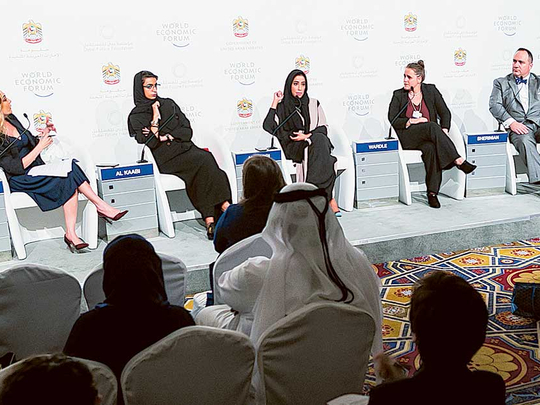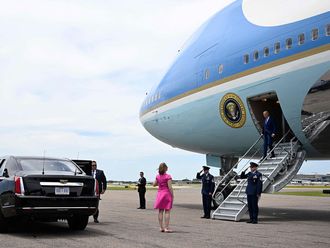
Dubai: The real problem is the lack of inclusive means to address global issues and not globalisation, Klaus Schwab, Founder and Executive Chairman of the World Economic Forum told an industry gathering.
The comments comes in a week after Donald Trump won the US presidential elections, who promised a return of American jobs, and said would possibly renegotiate trade deals, which some analyst has indicated a return to protectionist policies.
“The problem we have is not globalisation, but the lack of global governance and the inclusive means to address global issues. When we look at the elections in the US last week, there was a lot of discussion of jobs lost to globalisation, but of every five jobs, four were lost to technological innovation and only one was transferred to Mexico or other countries,” said Schwab.
Talking of Europe, which has been battling with mass migration, Schwab said “people today — I look at Europe — are not divided according to ideologies as we have seen in the past, but much more the fault line is between those that embrace and those that reject change.”
Trust deficit
A transparent world does not tolerate inequality, and that has created a trust deficit, according to Schwab.
“Trust in the system will not come back very fast but only through tireless efforts,” Schwab said.
The WEF said it was launching a global discussion on the future of the vital sectors, and will attempt to forecast what the future will bring.
“We have a responsibility to the next generations to answer the questions of the future and come up with the needed frameworks to overcome these challenges. It is important to define our challenges,” Schwab said.
The WEF founder said that innovation, which is considered as the bedrock of fourth industrial revolution, is the source of social progress “where everybody is profiting and no one is left behind,” Schwab added.
Beyond horizon
Mohammad Abdullah Al Gergawi, minister of Cabinet Affairs of the Federal Government of the UAE also said they are trying to explore challenges and opportunities that lie beyond the horizon as “we strongly believe in this moral responsibility towards the world and our next generation.”
“These meetings have a clear cut goal that we will not only discuss but bring it to fruition. We will set a course of action that includes various initiatives through developing a common vision that involves executive steps the governments will be responsible to include in their policies and strategies,” Al Gergawi said.
“We in the UAE recognise the importance of setting this practical course, and we have already started working to develop frameworks and strategies,” he added.
The UAE has also launched Dubai future foundation and a number of initiatives that set a global role model for speeding up the implementation of the 4th industrial revolution technology, as part of the necessary legislative frameworks.
The UAE has launched an integrated strategy that building the future part of the short, medium and long term framework and a cornerstone for the government’s work, the minister added.












